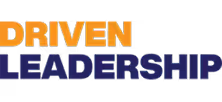Executive Leadership Courses in Seattle, WA


Leadership Training Executive Leadership Courses in Seattle, WA
Effective executive leadership is a strategic advantage for Seattle organizations navigating rapid technology shifts, complex stakeholder ecosystems, and hybrid work realities. Our executive leadership courses in Seattle, WA focus on strategic thinking, culture design, board and stakeholder engagement, and personalized coaching to produce measurable organizational outcomes. These programs are designed for C-suite leaders, executive teams, board members, and senior leaders ready to translate leadership development into clearer strategy, stronger governance, and a healthier culture.
Why Seattle leaders need targeted executive leadership training
Seattle’s economy blends global tech innovation, major nonprofit and higher-education institutions, and large logistics and maritime operations. That mix creates unique leadership demands:
- Rapid strategic pivots from product innovation cycles and shifting market pressures
- Hybrid and remote team dynamics amplified by long commutes and frequent rainy seasons
- Multiple stakeholder groups—investors, boards, public agencies, university partners, and community organizations
- A strong emphasis on sustainability, DEI, and values-driven culture
These drivers create common executive challenges: misalignment between strategy and execution, board friction on risk and growth tradeoffs, and culture erosion during scale or change. Executive leadership courses in Seattle, WA are built to address these local realities while delivering practical skills leaders can use the next day.
Common executive leadership issues we address
- Strategy without alignment: Strategy exists but does not translate into clear priorities or execution plans across the organization.
- Board and stakeholder disconnect: Boards, investors, and external stakeholders expect different metrics and governance styles than internal teams use.
- Culture drift during growth or reorganization: Values become aspirational instead of operational, damaging engagement and retention.
- Decision speed and risk management: Leaders struggle to move decisively while satisfying governance and compliance requirements.
- Leadership capacity gaps: Senior leaders lack high-confidence coaching, stakeholder influence, or strategic facilitation skills.
Program types and schedules (what to expect)
Our executive leadership courses in Seattle offer flexible formats to fit executive schedules and organizational needs. Typical options include:
- Executive Intensives (2–3 day onsite or virtual labs): Focused workshops on strategic thinking and culture design with experiential simulations and board engagement rehearsals. Ideal for leadership teams needing rapid alignment.
- Cohort-Based Certificate (6–8 weeks): A blended model combining weekly virtual modules, one in-person residency day in Seattle, and peer cohort coaching to embed new practices.
- Board & Stakeholder Engagement Clinic (1 day): Rapid-fire simulations and stakeholder mapping for CEOs, board chairs, and executive sponsors to improve governance conversations.
- Personalized Executive Coaching Packages: Multi-month coaching paired with 360 assessments, leadership development plans, and board prep sessions for leaders in transition or high-impact roles.
- Follow-up Implementation Sprints (4–12 weeks): Post-course team labs where leaders apply new frameworks to current initiatives with facilitator guidance.
Programs run on rolling schedules to align with organizational calendars—quarterly cohorts for longer programs and monthly intensives for focused topics. Sessions are facilitated in hybrid format to accommodate Seattle’s dispersed executive base.
Facilitators and instructor experience
Courses are led by experienced facilitators with deep operational, governance, and coaching backgrounds:
- Senior executive coaches with former C-suite experience in technology, healthcare, and nonprofit sectors
- Board members and governance experts who have chaired audit and governance committees
- Organizational psychologists and culture designers with applied experience in large-scale change
- Facilitators experienced in university athletics and performance coaching to apply high-performance team principles to executive teams
Facilitators use evidence-based tools—360 feedback, leadership style inventories, stakeholder interviews—and practical frameworks to accelerate application back on the job.
Diagnostic process and learning approach
Every executive program begins with diagnostics to tailor content and ensure ROI:
- Pre-program 360 and stakeholder interviews to surface blind spots and alignment gaps
- Organizational culture assessment to map current values, behaviors, and friction points
- Strategic priority audit to identify disconnects between stated strategy and execution
Learning is experiential and process-based:
- Case-based strategic planning exercises reflecting Seattle market scenarios
- Culture design labs where teams prototype behavior changes and accountability systems
- Board simulation exercises and stakeholder negotiation role-plays
- One-on-one coaching to convert insights into behavioral change and action plans
Follow-up measurement includes pulse surveys, leadership behavior checkpoints, and periodic progress reviews to verify performance improvements.
Typical solutions and outcomes
Executive leadership courses deliver targeted solutions that produce measurable outcomes:
- Clearer strategic alignment: Leadership teams move from vague goals to a prioritized strategy with defined measures and accountable owners.
- Improved board and stakeholder relations: Executives present strategy and risk in ways that build trust and accelerate approval cycles.
- Stronger, actionable culture: Organizations translate values into daily behaviors, performance norms, and talent systems that reduce turnover and improve engagement.
- Faster, higher-quality decisions: Leaders adopt frameworks that balance speed and governance, reducing stalled initiatives.
- Sustained leadership capacity: Personalized coaching builds resilience, stakeholder influence, and the ability to coach others.
Quantifiable business indicators commonly tied to these programs include higher employee engagement scores, improved retention of senior talent, faster project cycle times, and stronger alignment between operating metrics and strategic outcomes.
How organizations sustain gains after training
Leadership development is most effective when learning is reinforced. Common sustainability practices included in our courses:
- Leadership playbooks capturing decision frameworks, meeting rhythms, and accountability rituals tailored to Seattle teams
- Quarterly leadership refresh workshops and board rehearsal sessions
- Peer coaching pods within cohorts to maintain momentum and share applied learning
- Integration with performance management and succession planning to institutionalize new behaviors
Final considerations for Seattle organizations
Investing in executive leadership training in Seattle, WA addresses both universal leadership challenges and region-specific pressures: fast-moving tech markets, multifaceted stakeholders, remote work norms, and sustainability expectations. The right program combines strategic thinking, culture design, board engagement, and personalized coaching to produce durable change.
When structured around rigorous diagnostics, experiential learning, and post-program reinforcement, executive leadership courses become an engine for organizational clarity, stronger governance, and measurable performance improvement in Seattle’s dynamic environment.

